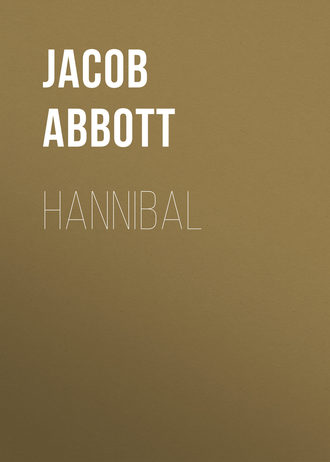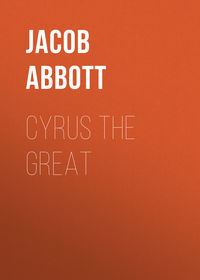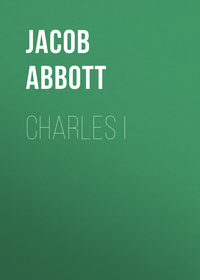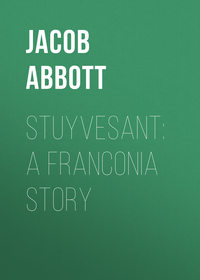
Hannibal
The city stormed.
A desperate struggle.
The people retreat to the citadel.
But we can not describe in detail all the particulars of this protracted and terrible struggle. We must pass on to the closing scene, which as related by the historians of the day, is an almost incredible series of horrors. After an immense number had been killed in the assaults which had been made upon the city, besides the thousands and thousands which had died of famine, and of the exposures and hardships incident to such a siege, the army of Scipio succeeded in breaking their way through the gates, and gaining admission to the city. Some of the inhabitants were now disposed to contend no longer, but to cast themselves at the mercy of the conqueror. Others, furious in their despair, were determined to fight to the last, not willing to give up the pleasure of killing all they could of their hated enemies, even to save their lives. They fought, therefore, from street to street, retreating gradually as the Romans advanced, till they found refuge in the citadel. One band of Scipio's soldiers mounted to the tops of the houses, the roofs being flat, and fought their way there, while another column advanced in the same manner in the streets below. No imagination can conceive the uproar and din of such an assault upon a populous city – a horrid mingling of the vociferated commands of the officers, and of the shouts of the advancing and victorious assailants, with the screams of terror from affrighted women and children, and dreadful groans and imprecations from men dying maddened with unsatisfied revenge, and biting the dust in an agony of pain.
The city fired.
Hasdrubal's wife.
The more determined of the combatants, with Hasdrubal at their head, took possession of the citadel, which was a quarter of the city situated upon an eminence, and strongly fortified. Scipio advanced to the walls of this fortification, and set that part of the city on fire which lay nearest to it. The fire burned for six days, and opened a large area, which afforded the Roman troops room to act. When the troops were brought up to the area thus left vacant by the fire, and the people within the citadel saw that their condition was hopeless, there arose, as there always does in such cases, the desperate struggle within the walls whether to persist in resistance or to surrender in despair. There was an immense mass, not far from sixty thousand, half women and children, who were determined on going out to surrender themselves to Scipio's mercy, and beg for their lives. Hasdrubal's wife, leading her two children by her side, earnestly entreated her husband to allow her to go with them. But he refused. There was a body of deserters from the Roman camp in the citadel, who, having no possible hope of escaping destruction except by desperate resistance to the last, Hasdrubal supposed would never yield. He committed his wife and children, therefore, to their charge, and these deserters, seeking refuge in a great temple within the citadel, bore the frantic mother with them to share their fate.
Hasdrubal surrenders.
Hasdrubal's determination, however, to resist the Romans to the last, soon after this gave way, and he determined to surrender. He is accused of the most atrocious treachery in attempting thus to save himself, after excluding his wife and children from all possibility of escaping destruction. But the confusion and din of such a scene, the suddenness and violence with which the events succeed each other, and the tumultuous and uncontrollable mental agitation to which they give rise, deprive a man who is called to act in it of all sense and reason, and exonerate him, almost as much, from moral responsibility for what he does, as if he were insane. At any rate, Hasdrubal, after shutting up his wife and children with a furious gang of desperadoes who could not possibly surrender, surrendered himself, perhaps hoping that he might save them after all.
The citadel fired.
Resentment and despair of Hasdrubal's wife.
The Carthaginian soldiers, following Hasdrubal's example, opened the gates of the citadel, and let the conqueror in. The deserters were now made absolutely desperate by their danger, and some of them, more furious than the rest, preferring to die by their own hands rather than to give their hated enemies the pleasure of killing them, set the building in which they were shut up in on fire. The miserable inmates ran to and fro, half suffocated by the smoke and scorched by the flames. Many of them reached the roof. Hasdrubal's wife and children were among the number. She looked down from this elevation, the volumes of smoke and flame rolling up around her, and saw her husband standing below with the Roman general – perhaps looking, in consternation, for his wife and children, amid this scene of horror. The sight of the husband and father in a position of safety made the wife and mother perfectly furious with resentment and anger. "Wretch!" she screamed, in a voice which raised itself above the universal din, "is it thus you seek to save your own life while you sacrifice ours? I can not reach you in your own person, but I kill you hereby in the persons of your children." So saying, she stabbed her affrighted sons with a dagger, and hurled them down, struggling all the time against their insane mother's phrensy, into the nearest opening from which flames were ascending, and then leaped in after them herself to share their awful doom.
Carthage destroyed.
Its present condition.
The Romans, when they had gained possession of the city, took most effectual measures for its complete destruction. The inhabitants were scattered into the surrounding country, and the whole territory was converted into a Roman province. Some attempts were afterward made to rebuild the city, and it was for a long time a place of some resort, as men lingered mournfully there in huts that they built among the ruins. It, however, was gradually forsaken, the stones crumbled and decayed, vegetation regained possession of the soil, and now there is nothing whatever to mark the spot where the city lay.
War and commerce.
Antagonistic principles.
War and commerce are the two great antagonistic principles which struggle for the mastery of the human race, the function of the one being to preserve, and that of the other to destroy. Commerce causes cities to be built and fields to be cultivated, and diffuses comfort and plenty, and all the blessings of industry and peace. It carries organization and order every where; it protects property and life; it disarms pestilence, and it prohibits famine. War, on the other hand, destroys. It disorganizes the social state. It ruins cities, depopulates fields, condemns men to idleness and want, and the only remedy it knows for the evils which it brings upon man is to shorten the miseries of its victims by giving pestilence and famine the most ample commission to destroy their lives. Thus war is the great enemy, while commerce is the great friend of humanity. They are antagonistic principles, contending continually for the mastery among all the organizations of men.
Hannibal's greatness as a military hero.
When Hannibal appeared upon the stage, he found his country engaged peacefully and prosperously in exchanging the productions of the various countries of the then known world, and promoting every where the comfort and happiness of mankind. He contrived to turn all these energies into the new current of military aggression, conquest, and war. He perfectly succeeded. We certainly have in his person and history all the marks and characteristics of a great military hero. He gained the most splendid victories, devastated many lands, embarrassed and stopped the commercial intercourse which was carrying the comforts of life to so many thousand homes, and spread, instead of them, every where, privation, want, and terror, with pestilence and famine in their train. He kept the country of his enemies in a state of incessant anxiety, suffering, and alarm for many years, and overwhelmed his own native land, in the end, in absolute and irresistible ruin. In a word, he was one of the greatest military heroes that the world has ever known.
The End1
The French word is col. Thus, there is the Col de Balme, the Col de Géant, &c.









